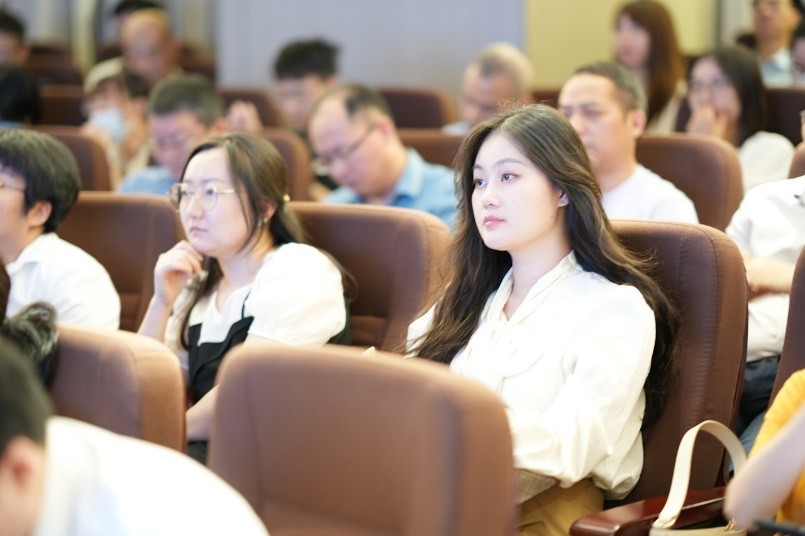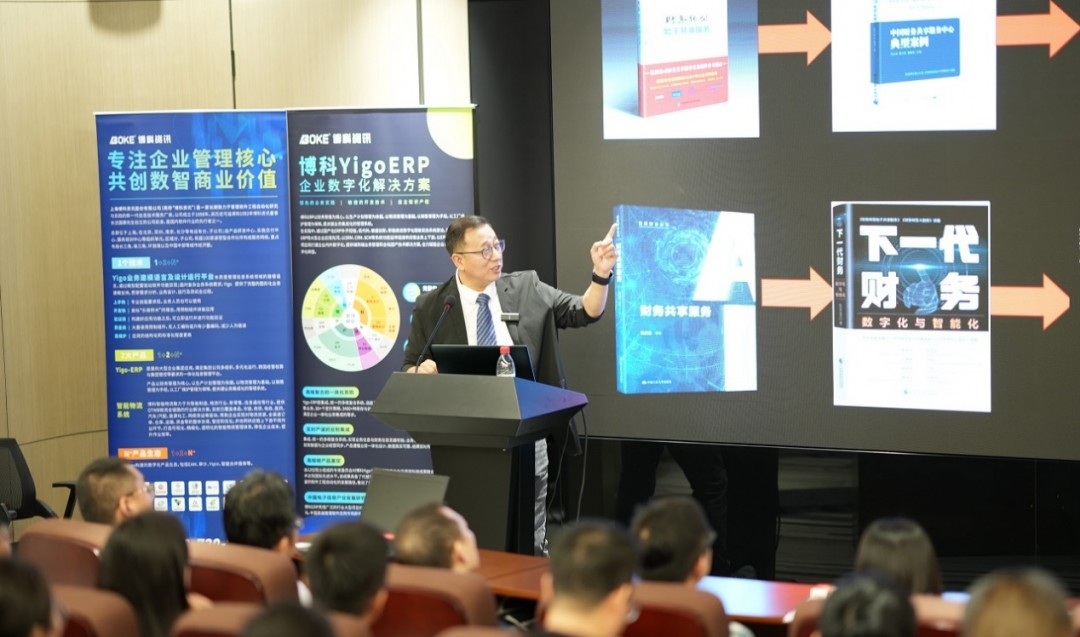Boke Information Zhao Yan: High end ERP promotes financial digital transformation
On September 2nd, the theme salon of "Business Finance Integration and Accounting Future Development in the Digital Intelligence Era" in the Greater Bay Area was successfully held in Guangzhou. The event was warmly welcomed by local state-owned enterprises in Guangdong, central state-owned enterprises stationed in the local area, and some administrative institutions. More than 60 finance department heads and deputy heads from the Provincial State owned Assets Supervision and Administration Commission, Guangdong Environmental Protection Group, Guangsheng Group, Yuexiu Group, Huadian Group, OCT Group, Guangdong Energy Group, Guangzhou Metro, Southern Power Grid, China Railway South China Construction, China Railway 15th Bureau, China Merchants Group, Yueke Financial Group, Jindi Group, and Southern Medical University Affiliated Hospital participated in the offline salon event, with the deputy general manager; More than 140 financial executives from state-owned enterprises, private enterprises, and central enterprises from different provinces and cities across the country participated online.

This salon event is jointly organized by Professor Long Channel, China Resources Mathematics, Boke Information, and Lantuo Chuangyuan. It is also co organized by the Information Technology Branch and Accounting Agency Branch of the China Association of Certified Public Accountants, and the Zhejiang West Lake Financial Technology Research Institute. The entire event was live streamed, and the attendees had enthusiastic exchanges. From collision of viewpoints to case analysis, the guest sharing content is full of valuable insights.

Regarding the integration of business and finance and the future development of accounting in the era of digital intelligence, Zhang Qinglong, an internal control consulting expert at the Ministry of Finance and a professor at the China Academy of Financial Sciences, believes that behind the integration of business and finance is the data integration of business and finance. This integration involves achieving closed-loop collaborative management and data integration and penetration from business to finance and then to business. The result of the integration of business and finance is to promote the digital transformation of finance. Zhang Qinglong further pointed out that the construction of financial shared data and middleware should connect accounting and business systems, build a more extensive management accounting system, and achieve the construction of data management systems. On this basis, implement behaviors that support strategy, decision-making, and service business.
The expert Fu Zunwen from China Resources Technology Co., Ltd. shared the latest successful operational practices of China Resources Shared Center in conjunction with the work practice of digitalization in China Resources finance. The current financial sharing has entered a digital stage. With the help of the national digital strategy and the guidance of the People's Bank of China's electronic bills and the State Administration of Taxation's Golden Tax Project, the overall digital ecosystem of China's finance has been improved. The digitalization of financial sharing centers has gradually become dominant, and with the improvement of business and finance integration and the continuous expansion of functional scope, the trend of sharing centers evolving into financial data centers is gradually emerging. Fu Zunwen emphasized that compared to the sharing centers built by China Resources overseas, the overall level of digital ecology in China has completely exceeded that of overseas, so there is no need to blindly trust foreign consulting agencies in domestic sharing construction. Zhao Qian, Co President of Boko Information and Digital Transformation Expert, pointed out that in the process of financial digital transformation, the function of finance is shifting from "reporting the past" to "predicting the future", and is transforming from functional departments and business partners to integrators of digital value. Traditional financial transactional operations are being replaced by software systems and RPA, and the focus of financial work will shift to planning, analysis, and advice, with a focus on creating new business value.
Zhao Jian believes that only high-end ERP systems that benchmark against global advanced practices can truly achieve business and financial integration, support complex business scenarios, promote the integration of the three levels of group enterprises, and achieve the transformation from traditional accounting and finance to planned analysis and finance.

He introduced that Boko YigoERP can replace foreign high-end ERP products, provide complete similar functions, and obtain national authoritative recognition; YigoERP is benchmarking against international ERP, absorbing the best global business practices and Chinese management characteristics, helping Chinese enterprises reshape the core of digital management, and has now achieved many successful applications.

Zhao Qian specifically pointed out that the independent and rapid development of Chinese enterprises cannot be achieved without the support of domestically produced high-end ERP. National key industries must have domestically produced high-end ERP to achieve import substitution. Domestic ERP should be compatible with foreign ERP to ensure that management functions do not decline; Further optimization based on smooth substitution has become the best practice for upgrading domestic ERP.





